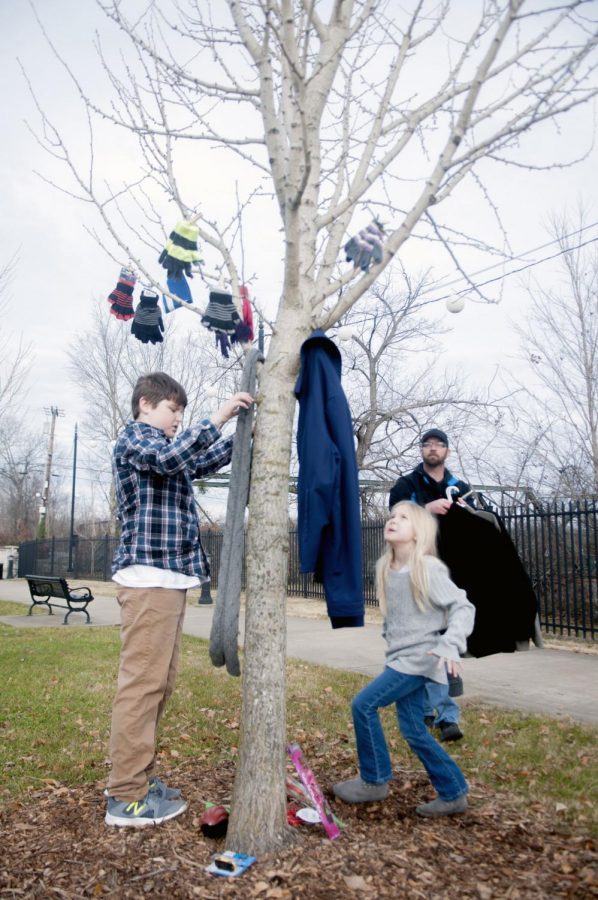Is America Truly “The Land of The Free”?
September 15, 2021
By: Anthony Clauson
“Land of the free” is something America has often boasted, and freedom as a whole is something that many people take very seriously. Although, with all the political controversy flying around I began to wonder, how free is America? It seemed time for someone to hit the hallways and see what Greenwood students really thought about the state of America’s freedom.
While interviewing there were a variety of responses received claiming whether or not America truly stood for freedom for all people, all with their own unique reasons of why or why not. Before we get into the people who were interviewed’s direct quotes, they had asked to remain anonymous and to respect this, they will be cited as Interviewee One through Interviewee Four. When asked if America stood for freedom for all, Interviewee One said “For all? No, for all no, for people that have similar interests, or goals, I’d say yeah, but in terms of like everybody in the world no,” To contrast this there were also answers such as, “I believe that America is free because you can believe what you want without being punished, I mean others might have their opinions about it but that doesn’t mean you can’t still believe what you want to believe.” The field seemed to be set with our two main camps but I wanted to dive deeper into what these people really believe.
It’s no mystery that America doesn’t have the most perfect track record as fair and being free towards all. From slavery, to the Trail of Tears, to Japaninse conentration camps, its easy to see how one could doubt the integrity of our freedom. When asked if these atrocities had tarnished the freedom of the United States, Interviewee Two said “You cannot say its never tarnished, like it never looked bad, or it never was bad, but if you’re talking about current day, I don’t think those things tarnish freedom. I mean activism is on the rise and it has been for a long time.” I pushed this asking if they believed America was once not free, but had now overcome that and was the height of freedom now. Interviewee Two said, “America will always be working for freedom because freedom is more the ability to fight for what you believe in and think what you want to think.”
This was a common denominator between the “yes, America is free” and the “no, America isn’t free.” The ones who think of the United States as free all saw freedom as more the ability to think a certain way without direct punishment for having that idea. Interviewee Four even says their definition of freedom is “being able to believe what you want to believe”. In my next interview, Interviewee Three didn’t think the U.S. was free for all, so to compare responses with Interviewee 3 they were asked if they agreed freedom was the ability to think and communicate without persecution. Interviewee 3 responded, “I think that I can definitely see that, and I agree with that. But is that a sense of freedom, it seems more like a necessity you know. Like communications and things of that nature are basic human necessities, I don’t know if you could categorize that as a luxury of being in America because you have that freedom. It seems you could do that anywhere, even if it wasn’t America.”
It seemed the main split with the question, is America free for all, came down to the definition of freedom. The people who claim yes define freedom as the ability to think and communicate what you believe, but the people who say no see freedom as not being discriminated against for said ideas. This was reflected when the Interviewees were asked whether or not they believed everyone has equal opportunities. People who claimed America was free for all had the belief that everyone has equal opportunities. But when questioned about who was not treated equally or as free, Interviewee One said, “The [gender] wage gap, racial differences, there are definitely people who get off easier”, and Interviewee Three said that “cis white men” had it easier and were given more opportunities.
There is no definitive answer to the question ‘is America free for all individuals’, because everyone has their own definition of freedom. People who claim yes see freedom as the ability to think freely, but those who say no see freedom as the ability to act on your beliefs. No matter what you believe, a common theme I gathered from my interviews is that every day we need to keep working together for our freedom.
Edited by:
Zeke Ewing
Viviana Hernandez
Dory Bomba

